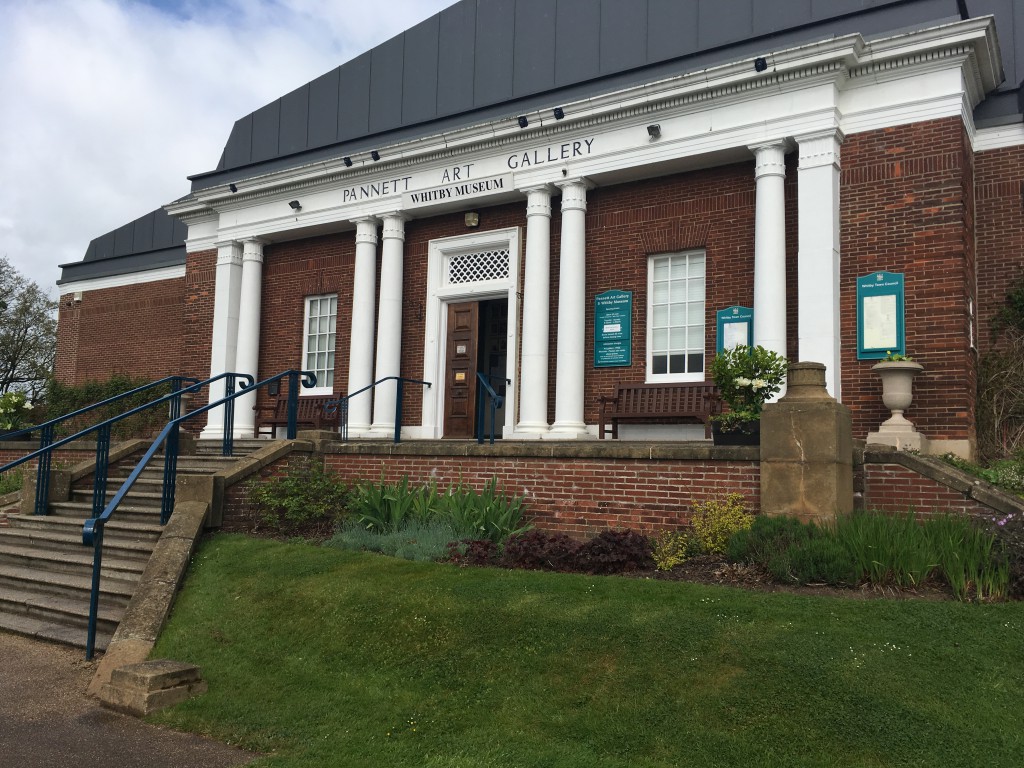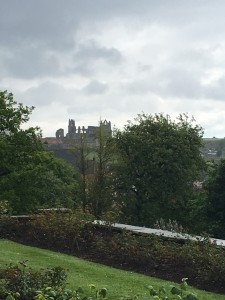
May 25, 2016, by Lucy
Whitby and the ‘year without summer’
Last week I was lucky enough to be able to attend a Royal Meteorological Society regional event in Whitby, North Yorkshire. The theme of Saturday’s meeting was ‘1816 – the year without a summer’. The programme was put together by Dennis Wheeler (University of Sunderland).
I wrote about the extreme weather of 1816 as experienced in the UK when I presented a paper at a conference at the University of Bern, Switzerland in April last year. That event was timed to coincide with 200 years since the eruption of Tambora, Indonesia in April 1815, whilst the Whitby meeting marked 200 years since the summer or ‘non-summer’ of the following year, famous for having been pretty cold, wet and generally miserable in the UK, and much worse in parts of Europe and North America. It should be noted (as it was during the Whitby meeting) that the term was really penned to describe the North American summer of 1816.
Whitby
It was my first visit to Whitby and a thoroughly enjoyable one. Although the event considered global (Nick Klingaman), UK (Phil Jones) and Icelandic (Astrid Ogilvie) weather and climate effects of the Tambora eruption, the event also included talks relating to the weather of the local area (Trevor Goodall), and some famous Whitby characters including the fascinating and famed polymath William Scoresby junior (1789-1857). Matthew Ayre, drawing on some work conducted by Dinah Thomson told us how Scoresby followed in his father’s footsteps, captaining the whaling ship The Henrietta at the age of just 21. In this role he had to keep a logbook detailing the Arctic voyages, including weather information and extent of sea ice. Scoresby’s logbooks are more detailed than most and are therefore particularly valuable for those interested in historical weather. There is much more information on the Whitby Museum website.
Literature and weather
Speakers also considered the cultural and creative effects of the extreme weather of summer 1816. John Thornes looked at volcanic sunsets in art whilst Pierret Thomet and Simon James focused on writing, and specifically gothic fiction. Whitby is famous as the setting for Bram Stoker’s Dracula, published 126 years ago. On Friday evening as I ran along the coastal path from Robin Hood’s Bay back to Whitby and the fish and chip supper at the Magpie Cafe it was easy to see why Bram Stocker found the remains of Whitby Abbey inspirational for his novel! However, the setting for Pierret’s talk was Switzerland, where 1816 became known as the ‘die hunger jahre’, as the poor weather destroyed the year’s harvest. That summer, a very literary group of friends (Claire Clairmont, Lord Byron, Percy Shelley, Mary Godwin (later Shelley), and Byron’s physician John Polidori) were holidaying at the Villa Diordati, Lake Geneva, and it is thanks in part to their non-fiction writing that we know what the weather was like that summer. It has been suggested that during the stormy days Byron challenged the group to write ghost stories – their outputs were certainly impressive. Mary Shelley penned Frankenstein (1818), Byron his poem Darkness, and Polodori, the least known figure of the group wrote The Vampyre, a short story that originally appeared under Byron’s name but that later influenced Bram Stoker’s novel Dracula as well as a number of other stories and operas. It is impossible to know whether the bad summer weather of 1816 is directly linked to the creative output of that group of teenagers but it makes a very good story! You can see some of the materials in this article by Greg Buzwell on the British Library website. Readers in Nottingham might be interested in a talk by Ralph Lloyd Jones on 14 June at Nottinghamshire Archives.
Unfortunately I had to leave to get the train and so missed Simon James’ talk ‘Dark Visions: Weather in Gothic Fiction’ but hopefully versions of all of the talks will be available on the RMetSoc website soon.
Over the last year we have continued to gather information from the archive relating to this year that tells us more about the weather of 1816 as it was experienced by particular people around the UK, adding personal narratives to historical instrumental data. I thought I would share a couple of recent finds from Derbyshire to conclude this post and mark 200 years since the ‘year without summer’.
Longsdon correspondence, D3580, Derbyshire Record Office
London, October 8 1816
My dear Mother,
… Nothing ? of ? given me so much uneasiness as the ? of the very great losses that must be consequent on this bad weather. Your harvest I fear will be almost destroyed. The year has certainly been most unpropitious in returns as well to agriculture as general commerce and the distress is now so universal that I assure you the private affairs of none with whom I am acquainted, who are embarked in business ?? make a better shew than that of our own family – and my fear so good then there is some cause for satisfaction, not in the sufferings of others, but because the suffering was inevitable in a great measure – In our department too things are beginning to look better…
John Longsdon
London November 6 1816
Dear James,
… I am extremely sorry to read your deplorable account of the harvest; one misfortune has followed another in the agricultural department most cruelly, but I think you will soon have better times – and inasmuch as the success of any part of the family will be gratifying to the whole… I must inform you that William’s affairs continue to assume a most prosperous appearance… As to the price of corn continuing at this present elevation I must say I have no expectation that it will. You know that foreign wheat, barley, oats, & flour, may be imported for home consumption without the payment of any duty after the 15 ? for a continuance of 3 months – and for 3 months longer is the average price of what shall not then be under 80/s quarter… I am of a different opinion about livestock – and think they must advance next year for which reason I would keep up my stock as much as possible and buy all I could do with at the present low rates during the winter…
John Longsdon
As ever we are always interested to hear about other weather narratives!
No comments yet, fill out a comment to be the first



Leave a Reply